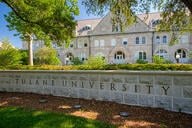You have /5 articles left.
Sign up for a free account or log in.
While much has changed in higher education in the last 25 years, Steven M. Cahn maintains that the important ethical issues (and their appropriate resolutions) have not changed that much at all. That's why there are very few changes in Saints and Scamps: Ethics in Academia, just released by Rowman & Littlefield in a 25th anniversary edition. Cahn, the author, is professor of philosophy and the former provost and vice president of academic affairs at the Graduate Center of the City University of New York.
The book covers teaching (Cahn is unsparing of any faculty members who shirk their duties there), graduate education (which he faults for failing to teach doctoral students how to teach) and personnel decisions, among other topics. On many issues, Cahn makes no apologies for being a bit old school. He advocates traditional letter grades, saying that they promote rigor and healthy competition. And he rejects the criticism that they somehow depersonalize the educational process. "Grades no more reduce students to letters than batting averages reduce baseball players to numbers. That Ted Williams had a lifetime batting average of .344 and Joe Garagiola one of .257 does not mean Williams was a better person than Garagiola, only that Williams was a better hitter."
While Cahn defends the concept of tenure, he argues that many colleges are too hesitant to reject anyone. "Instead of individuals being required to demonstrate why they deserve tenure, a school has been expected to demonstrate why they don't," he writes. "In court a person ought to be presumed innocent until found guilty, but in matters of special skill one should not be supposed competent until so proven. A school's failure to observe this guideline results in a faculty encumbered with deadwood."
Via e-mail, Cahn responded to some questions about the new edition of his book.
Q: Your introduction notes that this edition was "lightly edited" (although you also added new essays). Does that suggest you don't think the ethical issues of faculty life have changed much?
A: I believe that the fundamental obligations of a professor remain as they have been for decades: fulfilling the responsibilities inherent in teaching, scholarship, and service.
Q: If the ethical standards have stayed relatively constant, what do you think of ethical conduct in faculty life today? Are professors doing a better or worse job than they were 25 years ago?
A: The biggest difference I see is the enormous gap that has developed between adjuncts who are paid little and teach much, and “stars” who are paid much and teach little.
Q: Many discussions about faculty life today focus on technology. One hears constant debate about whether faculty members should become Facebook friends with students, whether laptops should be banned from classrooms, whether deans should look at faculty members' reviews on RateMyProfessors.com. Has technology has changed faculty ethics? Does your book provides guidance on these new issues?
A: For the most part I find that these technological issues offer variations on traditional themes but do not change basic concerns. For example, whether faculty members should become Facebook friends with their students is a variation on the classic issue of whether faculty members should be friends with their students. Faculty members ought to care about the progress of each student, but they should be able to deliberate, judge, and act without thought of personal interest or advantage. The principle is: be friendly without becoming a friend.
Q: Many faculty members today complain that students expect to be treated like consumers and to be catered to -- a notion with which your book suggests you disagree. How would you suggest faculty members apply your ethical standards in an era when many do not?
A: Students are entitled to complain about mistreatment. But the consumer analogy is fundamentally flawed, for academic degrees are not purchased but earned. They represent the faculty’s certification of an individual’s academic achievement, and thus the faculty has the responsibility to guide and assess that education.
Q: Your book is critical of graduate programs for not doing enough to help future Ph.D.s learn to teach. What should be done to change this?
A: The most practical approach is for graduate schools to offer courses in methods of teaching and require them of all students to be recommended for faculty appointments. These courses should involve future professors in all phases of the teaching process, including motivating students, choosing materials, presenting lectures, guiding discussions, constructing examinations, and grading papers, all viewed as part of a professor’s ethical obligations.




